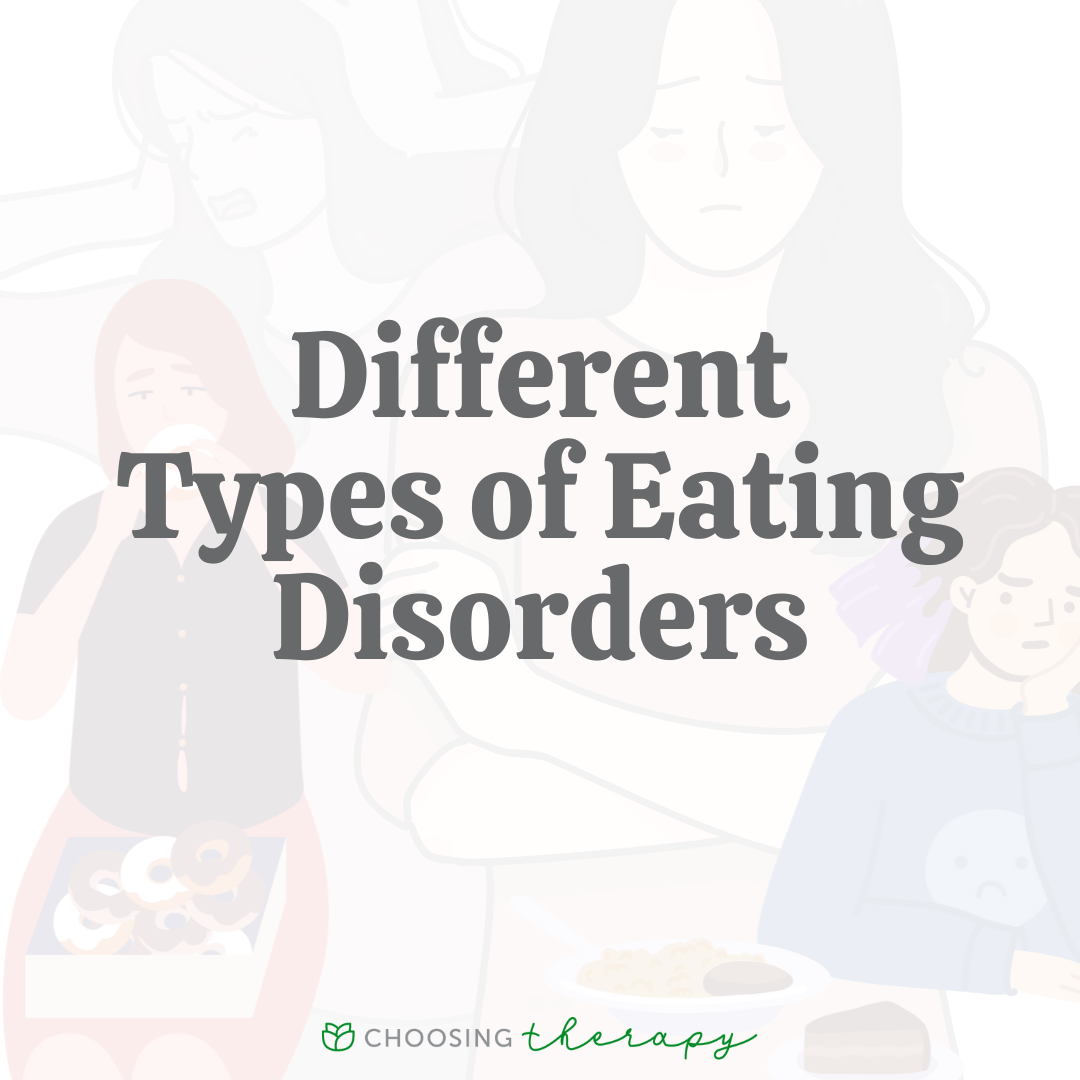Unknown Facts About Eating Disorder Recovery Specialist
Wiki Article
Some Known Details About Eating Disorder Recovery Specialist
Table of ContentsGetting My Eating Disorder Recovery Specialist To WorkThe 3-Minute Rule for Eating Disorder Recovery SpecialistWhat Does Eating Disorder Recovery Specialist Do?Unknown Facts About Eating Disorder Recovery SpecialistFascination About Eating Disorder Recovery Specialist


Food components may additionally end up being the individual's just subject of discussion. Wellness repercussions may include a selection of gastrointestinal and also nutritional discrepancies. It can likewise cause much of the very same health risks as anorexia, as the individual's caloric consumption may be severely limited. Orthorexia is also a typical co-occurring disorder connected with OCD.
Some Known Details About Eating Disorder Recovery Specialist
With this problem, a person will purely avoid certain foods to the detriment of their health and wellness. Unlike orthorexia, however, the avoidance of specific foods isn't driven by ideas of the food's healthfulness or pureness, however instead by a serious aversion to the food's taste, appearance, or smell (although concerns about wasting or gastrointestinal disorder might also be existing).In time, increasingly more foods become illogical, bring about an incredibly minimal scheme of appropriate foods. Previously understood as discerning eating condition, ARFID usually starts in childhood and also gradually gets worse over time. It's relatively usual for youngsters to be "picky eaters" as well as everyone has preferences of what they consume, but if it becomes compulsive as well as harmful to an individual's wellness, it calls for a check-in with an eating problem treatment expert.
Likewise like orthorexia, a negative or distorted body photo is not always a root cause of the problem. ARFID is normally treated making use of talk treatment and cognitive re-training such as Cognitive Behavior Modification (CBT). Unlike many eating conditions which typically initially present throughout teenage years, rumination problem is most usual in infancy as well as very early childhood, although it can continue into the adult years.
Our Eating Disorder Recovery Specialist Diaries
Usually, they do not experience anxiety or disgust when spewing, nor do they appear to make an initiative to vomit (as seen in bulimia nervosa). Rumination problem is typically a response to an illogical fear of ailment brought on Learn More Here by consuming, although its reasons are less well-understood than other eating conditions.Rumination disorder is provided in the DSM-V. Among the most harmful kinds of consuming condition, ED-DMT1 (colloquially called diabulimia), takes place when an individual with type-1 diabetes deliberately skips their insulin dose to slim down. Diabulimia is detailed as one of the several unspecified consuming disorders under the catchall term OSFED (Various other Specified Feeding r Consuming Problem).
While lots of individuals make a point to be mindful of the components and sourcing of their food, orthorexia can end up being destructive to the person's health. At some point, certain foods or whole groups are go to my blog eliminated from the person's diet plan; they might also begin to stress over the components in their foods, spending hrs each day preparation dishes.
Some Known Factual Statements About Eating Disorder Recovery Specialist
Food active ingredients might additionally come to be the individual's just topic of discussion. Orthorexia is also a common co-occurring condition associated with OCD.
With this disorder, a person will strictly avoid specific foods to the hinderance of their health and wellness. Unlike orthorexia, however, the evasion of particular foods isn't driven by concepts of the food's healthfulness or pureness, yet instead by a severe hostility to the food's taste, appearance, or odor (although problems regarding wasting or food poisoning may additionally be existing).

The Main Principles Of Eating Disorder Recovery Specialist
Like orthorexia, an adverse or distorted body photo is not necessarily a reason of the problem. ARFID is generally treated making use of talk therapy as well as cognitive re-training such as Cognitive Behavior Therapy (CBT). Unlike the majority of eating problems which normally initially present during adolescence, rumination disorder is most common in early stage as well as very early childhood years, although it can continue into their adult years.Usually, they do not experience stress or disgust when spewing, neither do they show up to make an effort to throw up (as seen in bulimia nervosa). Rumination problem is often a response to read the article an unreasonable fear of illness caused by consuming, although its reasons are much less well-understood than various other eating conditions.
Rumination disorder is detailed in the DSM-V. Diabulimia is provided as one of the several unspecified consuming conditions under the catchall term OSFED (Various other Specified Feeding r Eating Problem).
Report this wiki page